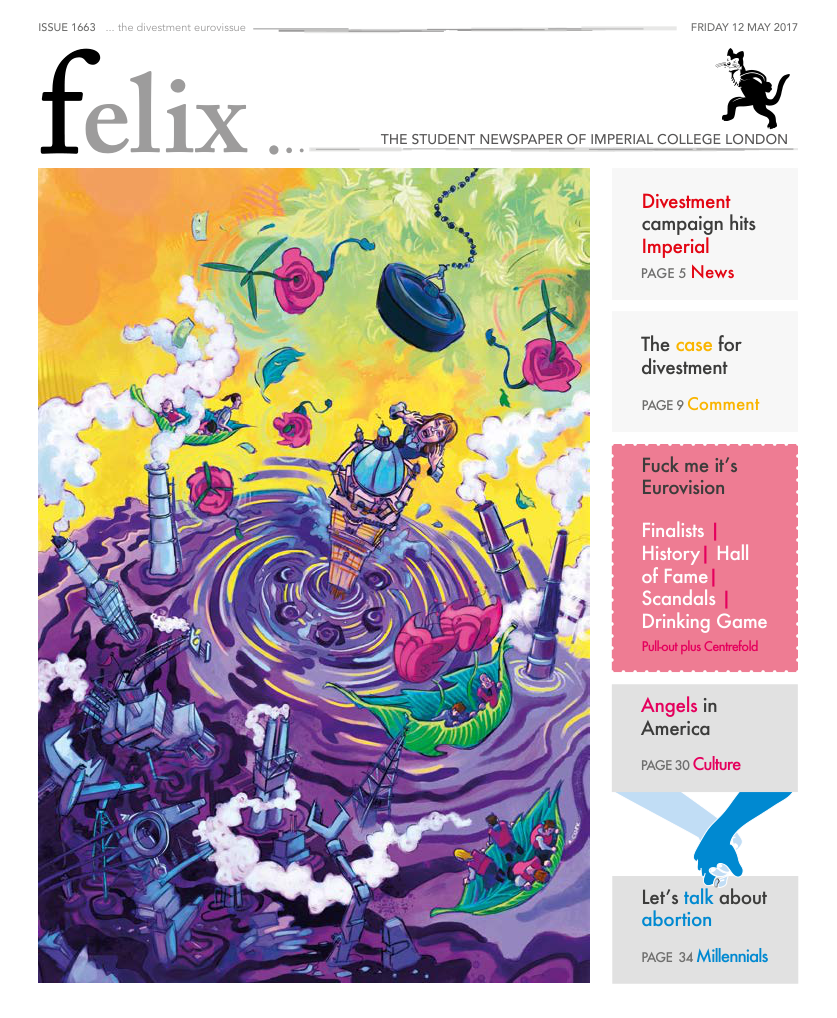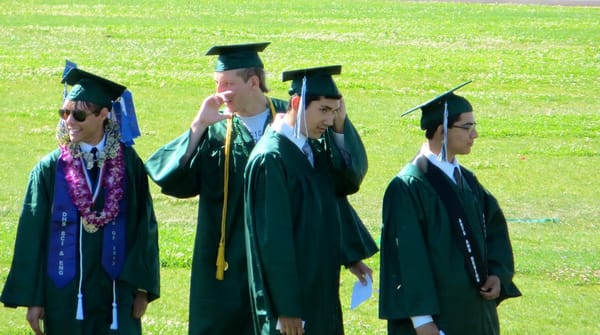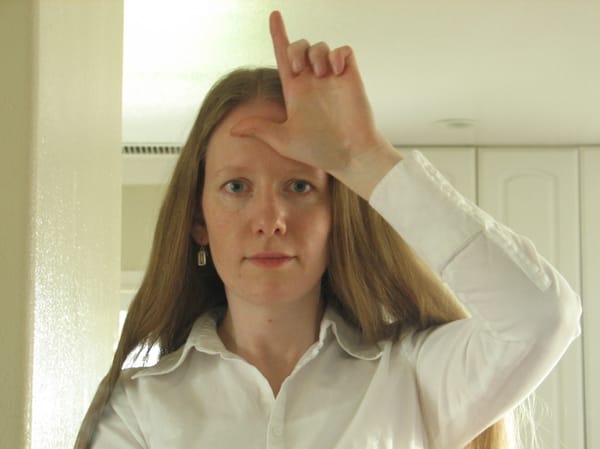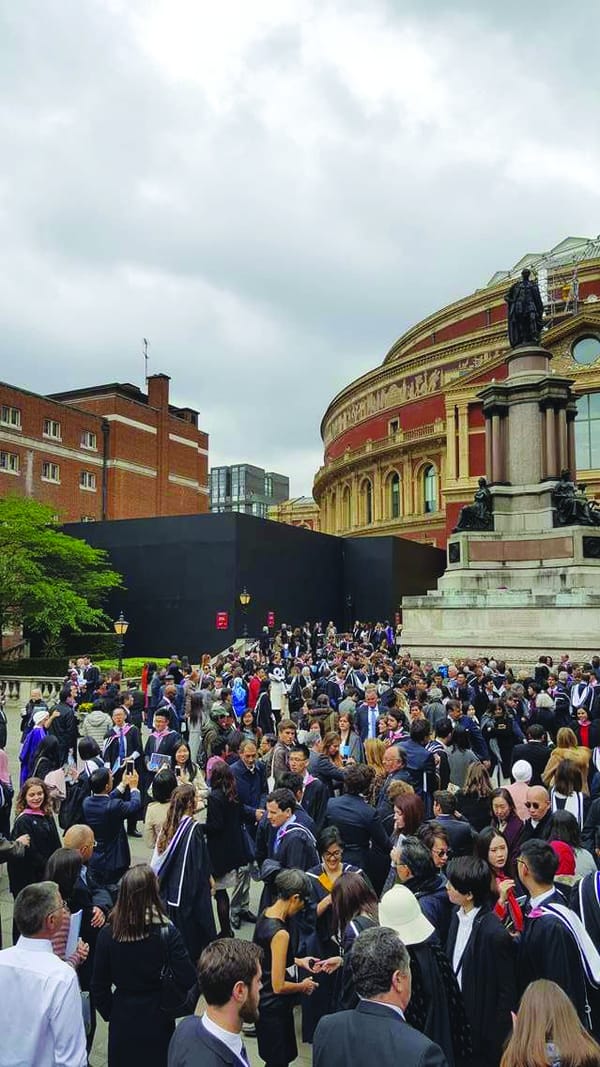Palestinian Ambassador gives talk
In response to the Israeli Ambassador’s visit

Imperial College was host last week to Manuel Hassassian, the Palestinian Authority’s diplomatic representative to the UK, following reactions to a talk with the Israeli ambassador Mark Regev back in January (Dr. Hassassian does not have the rank of ambassador as the UK does not presently recognize Palestine as a sovereign state). The talk was well attended by members of the student body and provoked discussion on both sides of the conflict.
The talk was hosted by Dr Matthew Wraith, who was pleased that his call to action at the end of the event with the Israeli ambassador for the other side of the debate to be showcased had been answered. Unlike the Israeli ambassador’s talk which was shrouded in secrecy, Hassassian’s visit was advertised well in advance.
The format of the event was essentially the same to Regev’s visit, with Hassassian giving a half hour opening talk before initiating a discussion and taking questions from the floor. In his opening monologue, Hassassian spoke about the current state of the conflict, how he felt that there was currently “no light at the end of the tunnel”, and how negotiations were essentially non existent. His talk covered everything from the involvement of the United Nations in the peace process and the resolutions that they have passed, to criticisms of the United States’ handling of their role as the “broker of peace”.
Unlike the Israeli Ambassador’s talk which was shrouded in secrecy, Hassassian’s visit was advertised well in advance
Hassassian also touched on President Trump’s meeting earlier last week with Palestinian Authority President Mahmoud Abbas, referring to it as merely “lip service”, and questioned if Trump even knew “the difference between a two-state and one-state solution”. He further accused Trump’s delegation of being biased against Palestine and called them partisan (referring to the US Special Representative for International Negotiations, Jason Greenblatt, and Trump’s son-in-law, Jared Kushner).
The ambassador also chastised Trump’s inflammatory comments in which he reduced the complexity of the situation. Last week the US President referred to the Israel/Palestine conflict as “something that I think is, frankly, maybe not as difficult as people have thought over the years”. Hassassian pointed out that the situation wasn’t quite like “buying real estate in Las Vegas”.
Trump didn’t take home the award of Hassassian’s “Most Failed President in US History” though, that honour was awarded to Barack Obama, who the ambassador felt had accomplished next to nothing in the conflict.
Trump didn’t take home the award of Hassassian’s “Most Failed President in US History” though, that honour was awarded to Barack Obama
Despite criticisms, Hassassian seemed to be a firm believer that peace negotiations via international bodies (UN, US Government etc.) were the only way forward and that “Palestinians cannot liberate Palestine by firearms”. This faith in external mediation was contrasted by his frustration towards international bodies which he feels have done very little to end the conflict. “[Palestine and Israel today are] stuck between the historically inevitable and the politically impossible,” Hassassian said, and later added his doubts about the prospect of a two-state solution.
Following Hassassian’s opening speech, the questions section produced heated and emotional discussion from the audience and Hassassian alike, and the topics of the Palestinian Authority Martyrs Fund, the UN, and the effectiveness of the PLO (Palestinian Liberation Organisation) were discussed amongst other things.
The event was realised thanks to efforts by Farri Gaba, an aeronautics undergraduate, who was pleased to see students from a range of backgrounds participating in the conversation. “I took inspiration from the previous Israeli ambassador’s talk about the Palestinian-Israeli conflict to invite his direct counterpart to discuss the same conflict from the opposing view” says Gaba. “I did this to offer interested students a breadth of perspective and understanding.”
Wraith is confident that these talks are a testament to a change in the culture of political apathy Imperial has been known for
Dr Wraith, the chair of both events, was similarly pleased with outcome of the talk: “This time there was a very good turnout of critical voices from the audience which I welcomed. I contacted the Israeli Society and the Jewish society beforehand, just as I contacted the Palestinian society last time, saying ‘come along, get involved, confront him with what you think and what you know’. They responded and got involved.”
Wraith is confident that these talks are a testament to a change in the culture of political apathy Imperial has been known for: ”I don’t think scientists have the option of being apolitical now, if they ever did. And judging by the rate at which this event sold out, I don’t think anyone wants to be”. This event takes place just weeks after 10,000 scientists and allies participated in the London ‘March for Science’. Trump’s recent attack on climate change and science in general, as well as the potential fallout that Brexit might cause to research funding, have highlighted the relevance of politics to the scientific community. “Already I’ve got yet more emails from students, just like Farri last time” added Wraith, ”saying ‘why don’t we do another event on India-Pakistan in Kashmir? Why don’t we get other ambassadors along?’ There are plans underway. Watch this space.”
Gaba himself has plans to make this a regular occurrence on campus: “I hope to keep this momentum in student interest and appetite going into next year, with similar high profile guests. I hope to extend the scope of the topics discussed to different areas of global politics and economics... Europe, America and the Asia-Pacific. I will hopefully be doing this from within a club soon to be established as ‘The Speakers Club’”. Watch this space indeed.









